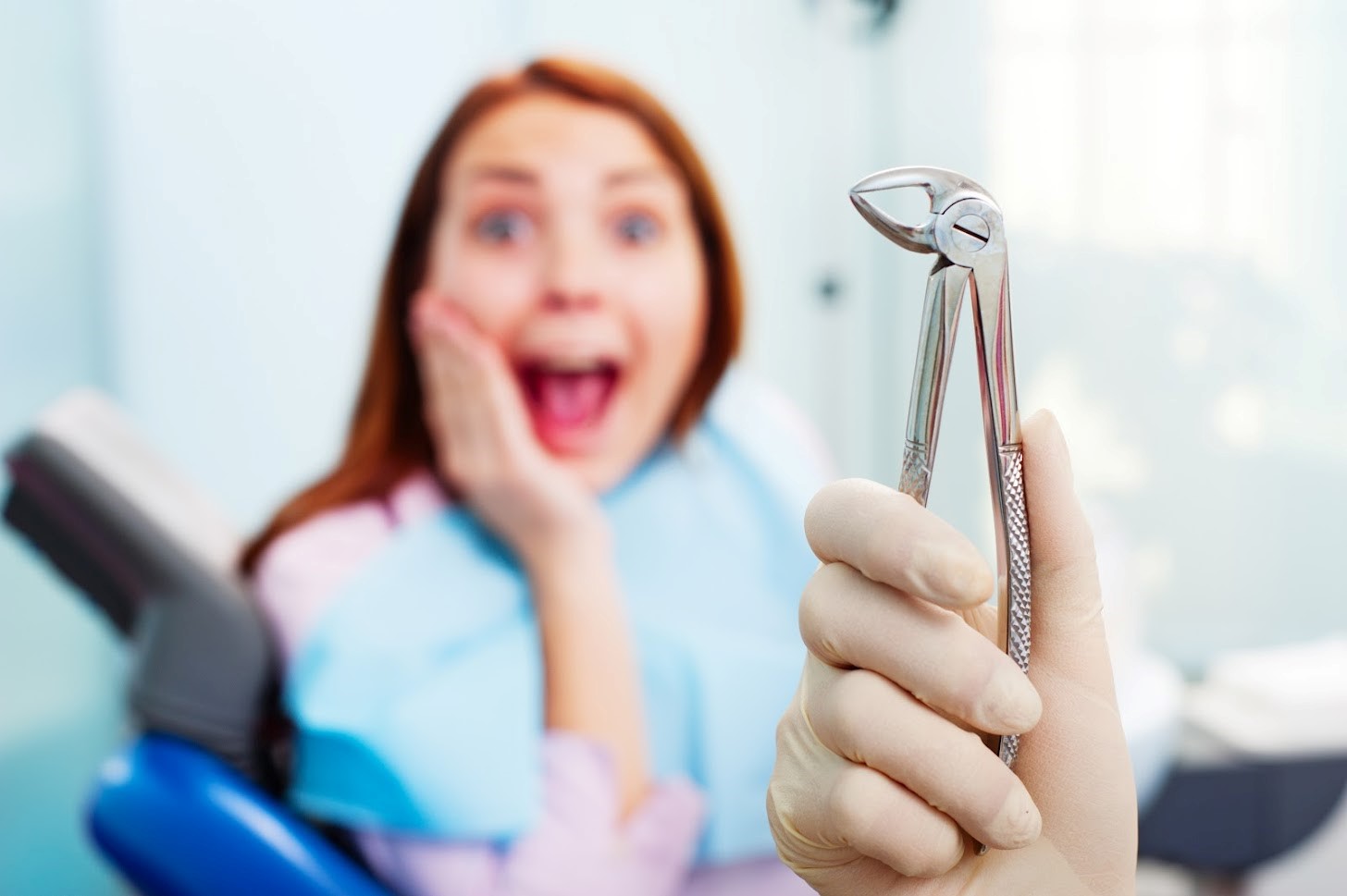The Top Reasons for Tooth Extraction

Why might you need a tooth extraction? When the dentist recommends an extraction, patients often have questions. Take a look at the top reasons why you may need this common dental procedure and how it can help to restore your healthy mouth.
Dental Caries
Also known as cavities, dental caries are areas of decay in a tooth. Oral bacteria create acidic byproducts. The acids in your mouth can erode dental enamel (the outer layer of the teeth) and cause cavities. According to the National Institute of Dental and Craniofacial Research, 92% of Americans ages 20–64 have had dental caries.
While dental caries won’t always result in the need for tooth extraction, this oral issue can cause serious problems. A 2020 study published in the International Journal of Environmental Research and Public Health found that dental caries were the cause of just over 52% of extractions (in the 120 participants).
If left untreated, dental decay can progress. When a filling or crown won’t correct the cavity or the decay has progressed, the dentist may recommend an extraction. The dentist may try a more conservative approach to treatment before extracting a tooth. But if this fails or the dentist is sure the decay has progressed, they may need to remove your tooth.
Periodontal Disease
Even though dental decay is a top reason for extractions, it isn’t the only possible cause. Periodontal, or gum, the disease may also result in tooth loss. Like dental decay, not all periodontal diseases will result in an extraction procedure. But if you fail to treat this oral issue or it is severe, the dentist may need to extract one or more of your teeth.
As gum disease (also known as periodontitis) progresses it can cause pockets, or spaces, in between the gums and the roots of the teeth. This allows bacteria into this area and can result in bone destruction at the root of the tooth. This severe form of dental disease may require an extraction. The extraction will remove the decayed area and give the surrounding tissue time to heal.
Dental Trauma
Decay and disease aren’t the only culprits behind oral issues. Trauma to the mouth can also result in the need for an extraction. These types of injuries may come from a sports-related accident, serious fall, or similar incident. A sharp blow to the face could crack or break a tooth.
Some traumatic injuries won’t require extraction. The dentist may first try to reattach the chipped part of the tooth or restore it with a tooth-colored filling.
More serious breaks may require a root canal and a crown or stabilizing treatment from an endodontist. If the tooth is beyond repair, the dentist may need to remove it. This can reduce the risks of additional injury or infection.
Crowded Teeth
Malocclusion, or misalignment of teeth, can cause overcrowding. Along with this common dental issue, genetic factors (such as a small jaw) can also cause your teeth to crowd. Braces and other orthodontic treatments can fix an overcrowding issue — but won’t always work.
If the dentist doesn’t feel braces will correct the crowding or you have a severe issue, you may need a dental extraction. This can help to make room for the rest of your teeth.
Along with the obvious aesthetic drawbacks to overcrowding, this problem can negatively affect your dental health. Crowded teeth make it difficult to brush and floss. Failure to properly care for your teeth can result in dental decay and gum disease.
Do you need to visit the dentist’s office for a dental carry, gum disease, injury, or overcrowding-related oral issues? Contact Apollo Dental Center for more information.

